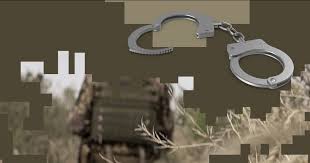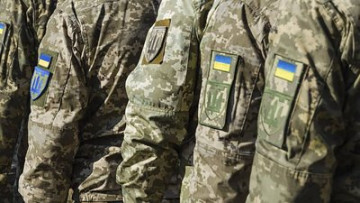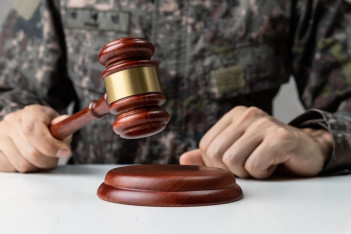In times of war, issues of mobilization, service duty, and the fulfillment of responsibilities become especially significant. One crucial aspect that may concern service members and their families is the situation when a person is listed as wanted for violating military discipline or evading mobilization. Such a situation may arise due to absence from service without valid reasons, failure to report a change of residence, or refusal of mobilization. So, how can one return from being AWOL and resolve the issue with the AWOL Search Service (SZZ) during wartime?
Reasons for Being Listed as AWOL
The search for individuals who violate military service laws is one of the main functions of the AWOL Search Service in Ukraine. During wartime, the situation is complicated by the increased mobilization needs, and every conscripted citizen must fulfill their duty to the country. There are several reasons why a person may end up on the AWOL list:
- Evading Mobilization. This is one of the most common scenarios. A person who does not report for duty or to the military commissariat without valid reasons may be listed as AWOL.
- Refusal to Fulfill Military Duties. A service member who leaves their unit without permission may be declared AWOL.
- Failure to Obey Orders. This can apply to both conscripts and contract soldiers. Disobeying orders from the command leads to serious consequences.
- Desertion. If a person leaves their place of service without informing the command, they may be declared AWOL.
- Discrepancy Between Residence and Military Records. Moving without notifying the new place of residence or traveling abroad without informing the relevant authorities can also lead to being listed as AWOL.
Procedure for AWOL Search
How the search for conscripts is conducted:
Notification of AWOL: the military commissariat submits information about the AWOL status to the relevant authorities
Search Measures: the search for the individual is conducted by the police and other authorized bodies.
Declaration of AWOL: if the person cannot be found, they may be declared nationally wanted.
Consequences for a Person Who Leaves Their Unit Without Permission
The consequences awaiting a person who leaves their unit without permission include:
- Administrative Responsibility: this may include fines or other penalties.
- Criminal Responsibility: in certain cases, criminal proceedings for evasion of mobilization or desertion may be initiated.
- Loss of Benefits: the service member may lose the benefits to which they are entitled.
How to Return from AWOL?
If you or your loved ones are listed as AWOL, it does not mean that the situation cannot be corrected. There are several steps you can take to return from AWOL and resolve the issue.
1. Determine the Reason for Being Listed as AWOL
The first step is to understand why you were listed as AWOL. For this, you should contact the military commissariat or the agencies conducting the search to determine the reasons. It is important to find out if there are indeed grounds for your being listed and, if so, what documents and steps are necessary to correct the situation.
2. Resolve Issues with Military Registration
If the reason lies in a change of residence or other bureaucratic issues, the first thing to do is to contact your local military commissariat and inform them of your actual place of residence. Often, this problem leads to a person "falling out" of the records, and they begin to be searched for. In such a case, it is necessary to correct the data in the military records.
3. Fulfill Military Service Obligations
If you were evading mobilization or not fulfilling your duties during service, it is important not to avoid the situation but to provide an explanation for your actions. If the circumstances were extraordinary, it is worth documenting this (e.g., severe illness, family circumstances). In case of evasion of mobilization, you can submit an application for deferment or explain the reasons for evasion and try to resume military service through court or military management bodies.
4. Repentance and Acknowledgment of Mistake
Sometimes, to return from being AWOL, it is important to acknowledge your mistake and demonstrate readiness to fulfill your duties. Military authorities may be willing to accommodate individuals who show a desire to return to service and fulfill their obligations.
5. Consult a Lawyer
If the situation appears complex and requires legal knowledge, it is worth consulting a military lawyer. The specialist will help collect the necessary documents, prepare an application for the military commissariat, or other legal documents to resolve the situation. The lawyer can also represent your interests in court if it is necessary to contest a decision regarding mobilization or service.
6. Submit an Application for Discharge or Transfer
In some cases, when a service member has certain grounds for a non-service status, they can submit an application for discharge from military service. If there are valid reasons (illness, family circumstances), there is a possibility to resolve the issue of discharge through legal procedures.
7. Reconciliation with Law Enforcement Agencies
After resolving internal issues with the military authorities, it will be necessary to coordinate actions with law enforcement agencies that may have their own requirements or claims against the person listed as AWOL. This may require certain procedures through the prosecutor's office or court.
Question
ow to Avoid Being Listed as AWOL?
Answer
Regularly Update Your Information with the Military Commissariat. It is crucial to always report any changes in your residence or other changes related to your service. Do Not Evade Mobilization. If you encounter issues with service, it is important to seek assistance from lawyers or military representatives rather than avoiding responsibility. Follow Military Discipline Rules. Adhering to these rules will ensure you avoid problems with military authorities. Be Prepared to Resolve Issues Through Legal Means. If you acknowledge a mistake or have valid reasons, do not hesitate to approach the appropriate authorities to resolve the situation.




































